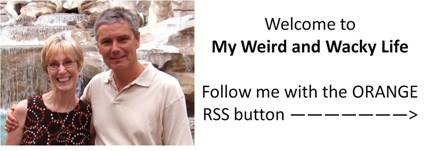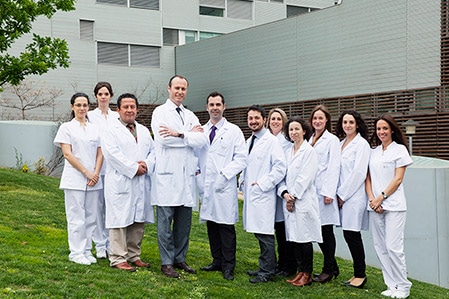ADR (Artificial Disk Replacement) FAQ page
Since I got my surgery and documented the process from beginning to end I have received numerous emails and comments from those who have found not only my blog but also my YouTube videos. I try to take the time to answer everyone’s questions but as so many of the questions are repeats I also decided to put all the questions and the answers I give in one place. I will still endeavor to answer anyone’s questions and even talk on the phone if that helps you.
Please be aware I am NOT affiliated with, nor compensated by, any of the Doctors, Hospitals, Hotels, Places to stay, anything I talk about on this page (and most of my blog!). The opinions mentioned here are my own (or my husbands) and are not intended as medical diagnosis, recommendations, legal advice or any other advice for that matter.
I talk about MY experiences, what I like or do not like, what happened to me and what I would do differently or what I would do again. Please do your own research before making this life changing decision, this blog should be just one part of your information gathering.
—–0—–
- What was your history and how did the problems progress? Did you have a diagnosis, MRI, etc?
Answer: I have had back ‘problems’ for more years than I’ve had hot dinners it seems like sometimes. I had numerous injections in my back while we were living in England but I only really started documenting it when we arrived in the USA.
Here’s a brief synopsis of the progression since arriving in the US:
2001 MRI L4/5 bulge/herniation, Nerve Block L5
2001 – 2007 numerous back issues that were not bad enough to convince a doctor to give me an MRI. Mostly got by with living on pain killers.
2007 MRI L3/4 large hemorrhage L4/5 annular tear/bulge Nerve Block L4/5 Laminectomy L4/5
2008 MRI L4/5 annular tear
2009 MRI L3/4 extruded fragment/bulge/fibrosis/tear Laminectomy L3/4
2010 MRI L3/4 protrusion/extruded L4/5 bulge/protrusion
2011 MRI L3/4 bulge/annular fissure L4/5 bulge/annular fissure L5/S1 bulge
2012 MRI L3/4 protrusion L4/5 bulge Nerve Block L3/4/5
By 2011 my life was pretty much at a standstill, it was very hard to sit for any length of time so I had to work by lying flat with a table over me with my laptop and second screen fixed to it. This continued until my actual ADR surgery.
I think the list of MRI’s (most of them with and without contrast) answers the second part of this question, yes did I have a diagnosis and that was Degenerative Disk Disease.
- How long did you explore different medical approaches and how did you settle on ADR?
Answer: Nearly every surgeon I went to sent me for Physical Therapy either because they weren’t sure what to do with me or the insurance at the time required it. Sometimes PT helped, sometimes not. The only reason I managed to get the two Laminectomys was because I ended up in ER both times. The first time the MRI showed I was bleeding into my spinal column, the second showed a piece of disk pressing against the spinal cord.
I have my husband to thank for my ADR surgery. He was always trying to find ways to help me and he is the one who found out about it. When he told me about replacing the disks in my back I pooh poohed the idea as preposterous as it seemed an impossible thing to do. Stupid me. I then started the research and realized I had no other option. Having tried inversion tables, massage, lumbar support back braces, traction… nothing worked and it was obvious I was getting worse.
There were also so many people who had come through the same surgery that I needed, with flying colors, and a renewed view of life. I was, quite literally, at the end of my rope with the pain being so bad, and my quality of life so low, that I was suicidal. The only thing I did know going into this was that I did NOT want a fusion, it was ADR or nothing.
There are a lot of studies that have been done showing the outcomes from fusion and ADR and even hybrid operation where L5/S1 is a fusion and L4/L5 is ADR. We all have our biases when we read something even if we don't know it and everything I read about fusion rang alarm bells in me. The pressure on the disks above the fusion is pretty high often leading to another fusion further up the spine at a later date. Sometimes the bone grafts in the cage refuse to heal and solidify together. If you have to have three of them (as I did) my ability to bend would have been greatly compromised.
So it boiled down to ADR but which disk and which Dr? That again is more reading, talking to the doctors, reading about others who have had the same surgery,what disks they had inserted, which Doctor they used,
- Can you describe your search for ADR surgeons and why did you select Dr. Clavel?
Answer: There are a number of places to find out about the Doctors who do this surgery. Google 'ADR Surgeons', search the ADR forum, research the hospitals the surgeons practice at. Finding out who does the surgery is not difficult, the hard part is making a decision on who you want to do the surgery.
I had some criteria going into the research, mainly that I wanted a neurosurgeon. Having had two operations already performed by an Orthopedic surgeon, and knowing that whoever did the ADR was working with a lot of soft tissue not just bones, that decision seemed like a no brainer to me. If I was getting a hip replaced an orthopedic would be fine but this is soft disks not bone.
Next, you have to remember I am English by birth, this means I have had a lot of contact with different European cultures. The Germans are by and large quite rigid and rule orientated (just my humble opinion) and I wanted someone who could be flexible and change their course if they find something different once they cut me open.
When I spoke to the staff of one of the surgeons in Germany they were very brusque and I came away feeling that my questions hadn’t been answered. I felt that I got ‘stock’ answers and that they said the same thing to each patient.
The Spanish on the other hand can, and do at times, have a mañana mañana attitude but they are also flexible in their thinking.
So why did I finally decide on Dr Clavel? He is a Neurosurgeon, he was educated in the US, he speaks great English, he has a great bedside manner and he is flexible and thinks on his feet. Remember, this is only my humble opinion but once the operation started he realized he need to put in bigger men’s disks than the smaller women’s disks. After looking at my spine, he felt that the larger men’s disks would give my vertebrae more support, especially at my age. This is not to say a German Doctor or any other doctor wouldn’t have done the same thing, but I have to say I seriously doubt that they would have.
He also had great reviews everywhere.
- What was the experience like going to Spain? How long were you there and what were the pros & cons?
Answer: Again being British we often vacationed in Spain when we lived in the UK. You get one week of summer in England but you never know what week it is so everyone goes to the Mediterranean for their summer holidays because at least there you know you will experience summer! It has been a huge British vacation area since the 1960’s, the beaches are fabulous, the architecture is wonderful, just about everyone speaks some English, and there are so many Brits who have moved there the food is pronounceable… I could go on and on.
I have a daughter living in Germany, in Heidelberg, and could have had my operation in Germany, and it would have been great to see her and the grandkids but… you have to think about your recovery too and being weak and sickly with 2 small grandchildren running about is probably not the wisest thing to do.
The weather is great, Barcelona is right on the coast so warm balmy breezes. Germany can get really hot and no A/C in most places. England is mostly cold, wet, grey and dreary (I know I spent most of my life there ;o) The one thing they get you to do right away after the surgery is walk, walk and walk some more. Very easy to do in Barcelona, good public transport, cafes on every corner so somewhere to sit when you get tired.
The hospital was very modern and very accommodating. There was a large couch in my room that opened up to a bed and the nurses came and made a bed up for my husband every night. I’m pretty sure that would not have happened in England for instance (although I could be wrong, it's been known to happen) and I have no idea about the room accommodations in Germany although I suspect they have the same setup as Quiron in Barcelona.
How Long Were You in Spain?
We were in Spain for almost a month. Because I was coming up to 60 years old at the time of the operation I knew I would probably need a bit more time than most to get over the surgery, so instead of the usual 2 weeks we went for 4. I also figured it might be hard on me to go out to eat every day, 3 times a day and I am a Celiac to boot so cooking my own meals is a must (well, Tim cooking for me anyway.)
On top of that we have our own business to run and the thought of laying in bed trying to recuperate in a hotel room while Tim is on the phone trying to make a long distance call to a client… well, it doesn’t bear thinking about. So we needed 2 rooms at least and hotels there just don’t have those kind of accommodations, hence we rented an apartment.
The cost was about the same as a hotel but the amenities were 10 times better. Living room, dining area, bedroom, bathroom, patio, Wi-Fi, and was fully furnished with everything you could possible need including a special shopping trolley to pull your groceries back from the store!
Here’s who we rented our apartment (they are called ‘flats’ in Europe) through:
ShBarcelona
Casanova 99, Baixos
08011 Barcelona
Espanya
+34 (934) 521 347 | Ext 110
Our agent was Gregory Dupard (email and phone number above) and he was fantastic, so accommodating and helpful. We were able to speak to him before we left the US and he confirmed numerous details via the phone and called us in the US to confirm things. He even went with us after we arrived in Barcelona to a telephone store so that we could buy a couple of ‘pay as you go’ phones.
Pro’s and cons of going to Spain:
Pros
I speak a bit of Spanish so got to practice though just about everyone speaks some English
In winter it’s warmer than Utah where I live
The people are wonderful
The hospital is very modern as is the level of nursing skill etc.
The food is great
Barcelona is a great place to walk about
The apartment we rented was great and had great WiFi
The public transport system is very good
Cons
This is a foreign country, if you don’t like strange food and things different than you are used to you will feel out of place
Most of the hotels are very basic by US standars though comfortable and very clean, unless you can afford a high end Marriott etc (if there is one there)
The stores are all small by US standards and shopping in a supermarket can be a bit daunting the first time you go there
Most restaurants have an English language menu but this is still a foreign country with foreign food
If you don’t like using public transport then renting a car will cost you a lot, there a very few places to park and you pay for ALL parking
High season is tourist time so some places can be packed with people
You will have to deal with a foreign currency as you can pay for most things but not everything with a credit card
- What was the cost of the surgery and what other costs were there? As my insurance will not likely cover procedures out of country, costs do come into play.
Answer: My 3 level cost me €30,119.40 plus €1000 for insurance (May 2013). That’s about $42,986 without the hotel but that was 9 months ago now, and it probably cost more now. Plus different doctors have different fees. We rented a fully furnished apartment for a month which costs about $3,000. Those prices by the way are subject to inflation, where you stay, whether you go for the insurance etc.
I will say that if you want to use the hotel they recommend that will be added to your price, we knew we would be getting an apartment so asked them for a quote without the hotel.
Once the price is set, as far as I know, that is the price, if you have to stay in intensive care, if they have to go back in while you are there, whatever, it is in the price quoted. I spent 2 days in ICU and another 6 days in hospital and didn’t have to pay a penny more. Most people are in for about 5 to 7 days depending on how well they bounce back and then have 7 days in the hotel with a Physical Therapist coming to their hotel.
Do keep in mind that the IRS will allow you to claim for certain medical procedures as long as they are available and legal in this country (USA). That also goes for the cost of any medications as long as they are consumed within the country you purchased them and the cost of travel associated with getting the medical procedure.
Now, I am not an accountant and this is not advice in any way, check with your own accountant before claiming anything on your taxes. I did claim my operation and the cost of the flights on the advice of my accountant which obviously helped me tax wise but you need to get your own advice.
List of possible costs to consider would be:
- Trip from your home to the airport and back
- Flights to and from Barcelona
- Accommodations
- Food whether store bought or restaurants (usually 20% to 50% more than the US so budget accordingly)
- Transport around the city
Usually included in the price set by the Doctor:
- Transportation from the airport to your hotel/apartment and back
- Transport from your hotel/apartment to and from the hospital (for the surgery and the follow up)
- First night in your hotel (you and your companion then stay in the hospital) and subsequent 7 days after discharge





 Facebook
Facebook